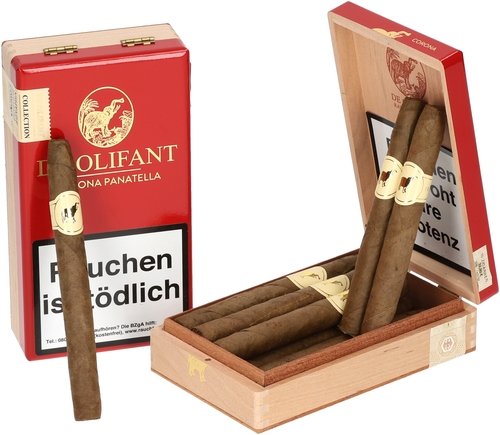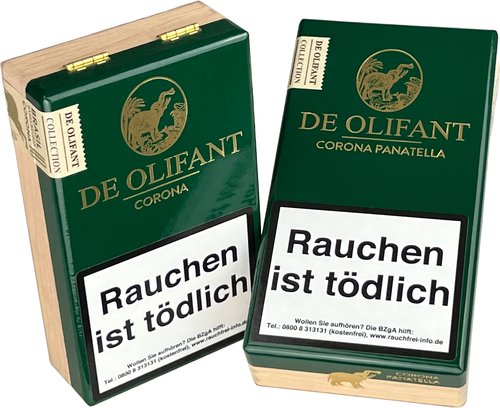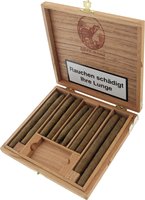De Olifant: Traditional Short- and Medium-Fillers from Kampen
The cigarillos from "De Olifant"—which translates to "The Elephant" in English—have been around since the early 19th century. The brand name traces back to the trading ship "De Witte Olifant," which sailed under the flag of the Dutch East India Company, the most influential trading corporation of its time (1602–1799). This and many other Dutch ships regularly brought tobacco from the East Indian colonies of Java and Sumatra to the Netherlands, where it was processed into high-quality smoking products. The De Olifant tobacco manufactory carries on this centuries-old tradition, relying exclusively on pure, top-quality tobaccos. With an annual production of around 4.4 million cigarillos, short-fillers, and medium-fillers, De Olifant remains a relatively small-scale manufactory compared to other manufacturers—yet one with a clear philosophy: "Quality over quantity."
The German Roots of De Olifant
The cigar bands on De Olifant cigars feature two years that mark the brand's origins. 1826 signifies the founding of the first tobacco factory in Kampen, a city with a maritime trade background. The initiative came from Bremen merchant Johann Lehmkuhl, who recognized the favorable location and thus laid the foundation for a thriving tobacco industry. Kampen quickly became the most significant cigar-producing city in the Netherlands—a counterpart to the German city of Bünde, renowned for its cigar tradition. In 1832, Dutch entrepreneur Meulenkamp founded another cigar factory, which later became known as De Olifant.
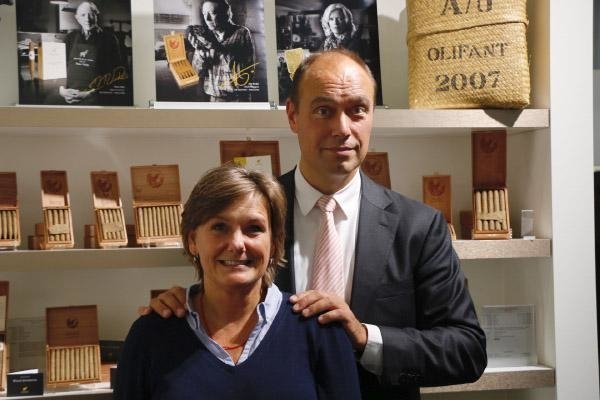
By 1900, Kampen was the undisputed center of the Dutch tobacco industry. More than 120 manufactories shaped the cityscape, particularly along Vorstraat, where vast quantities of tobacco from the Indonesian colonies were processed—whether into cigars, pipes, or chewing tobacco. The city's significance for the tobacco trade was so great that it was even considered as the capital of the Netherlands for a time. However, little remains of this former golden age. Today, De Olifant is the last remaining manufactory in Kampen. Since 1993, the company has been managed by Thomas Klaphake and his wife, Maaike van der Sluis, the latter being part of the Van der Sluis family, which has run the company for four generations.
De Olifant Cigars and Cigarillos
De Olifant’s philosophy is based on the belief that an exceptional cigar requires an outstanding wrapper. For this reason, the company relies on the rare Sumatra Sand Leaf, valued for its unique taste and delicate aroma. This wrapper, known among aficionados as "white-burning gold," is cultivated in limited quantities and surpasses even silver in value.
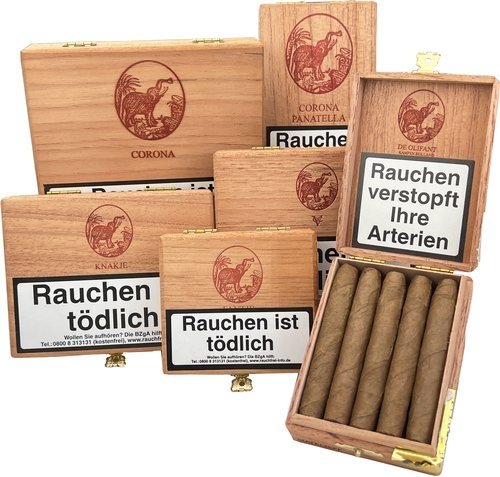
For Thomas Klaphake, one thing is clear: Even in times of shorter smoking breaks, quality must remain a top priority. That is why De Olifant’s Classic line combines artisanal perfection with a refined flavor experience. From the compact Fantje Imperial to the sophisticated Corona Panatela Imperial, there is a perfect format for every connoisseur at any time of day.



